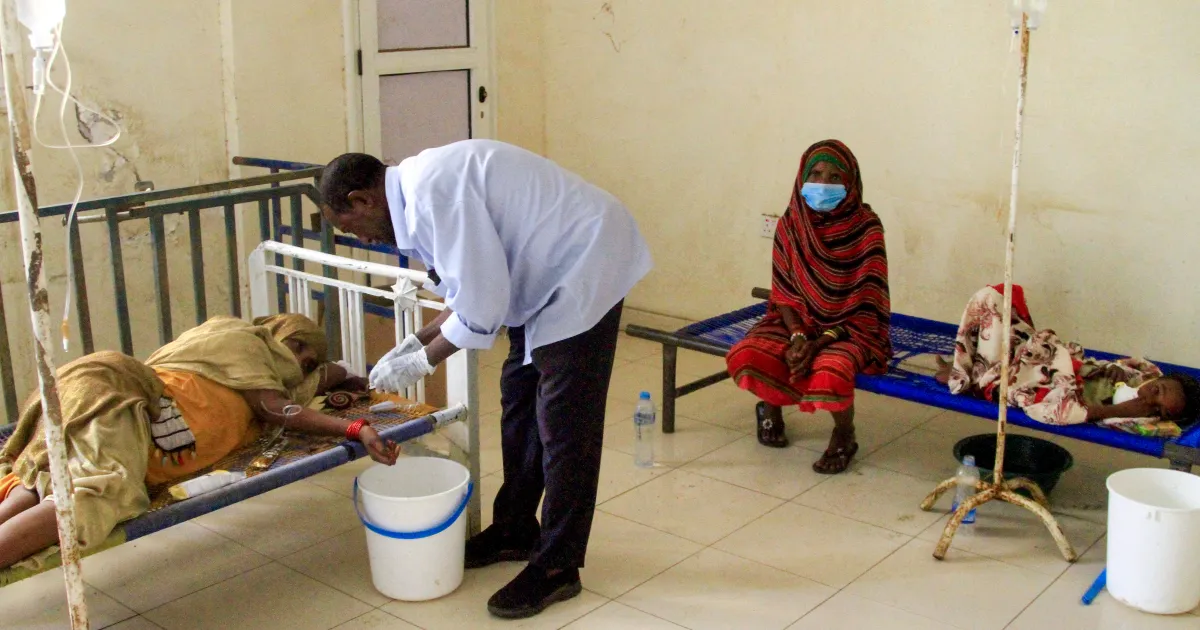A deadly cholera outbreak in Sudan’s capital, Khartoum, has claimed the lives of at least 70 people over the past two days, according to health officials, as the city reels from the collapse of essential services amid a prolonged conflict.
Khartoum State’s health ministry reported 1,177 new cholera infections and 45 deaths on Tuesday, followed by 942 additional cases and 25 deaths on Wednesday. The sharp rise in infections follows weeks of devastating drone strikes—blamed on the paramilitary Rapid Support Forces (RSF)—that crippled the capital’s water and electricity supply.
The outbreak has intensified the strain on Khartoum’s already broken healthcare system. The federal health ministry revealed that 172 people died from cholera in the past week alone, with 90 percent of those fatalities recorded in Khartoum State.

Despite the dire conditions, authorities say 89 percent of patients in isolation centres are recovering. However, they caution that worsening environmental conditions, including lack of clean water and sanitation, are accelerating the spread of the disease.
The outbreak comes as the army-backed government claims to have cleared the last RSF strongholds in Khartoum State, two months after reclaiming the capital’s core. Khartoum and surrounding areas have endured two years of brutal fighting between the Sudanese army and the RSF, leaving vast swaths of the city in ruins.
The ongoing conflict has killed tens of thousands and forced 13 million people from their homes, making it, in the words of the United Nations, the world’s worst humanitarian crisis. Up to 90 percent of hospitals in the hardest-hit regions are no longer operational, leaving millions without access to critical medical care.


 Trending
Trending 